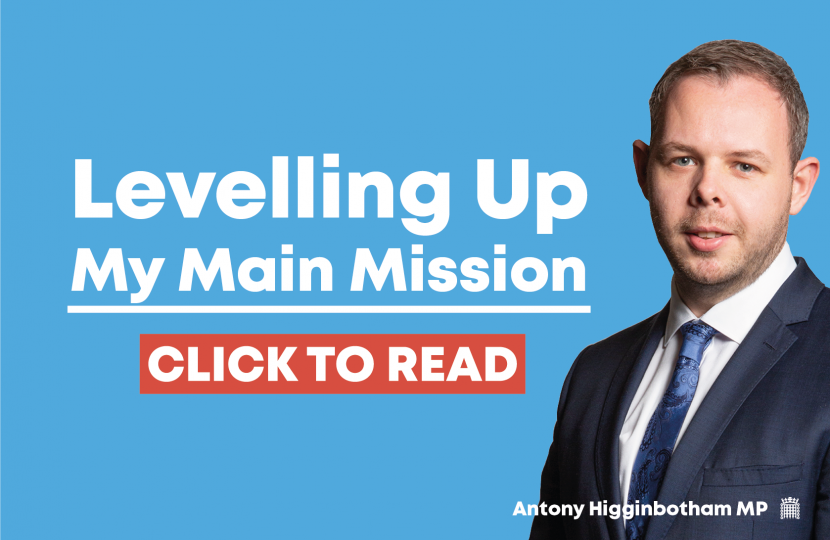
From day one of being elected as the Member of Parliament for Burnley and Padiham my overarching mission has been to level up our borough, making sure that every resident has the ability to fulfil their potential by breaking the link between where in the UK you live and the opportunities that you are afforded. That was the central message of the General Election campaign alongside Getting Brexit Done, and it is what delivered the largest Conservative majority in a generation.
We have enormous talent in our borough, alongside world class innovation and businesses. But the opportunity for those businesses to thrive, and people to reach their full potential, is not the same as it would be in other areas. That’s what levelling-up is all about and it’s what drives me in Westminster and across Burnley and Padiham.
I sometimes face criticism for being too visible. For promoting our businesses, organisations, and innovations with videos, photos, speeches in Parliament and press releases. It is something I make absolutely no apology for. Our borough has, for far too long, been talked down or outright forgotten. That’s the very opposite of levelling-up.
By showcasing the best of what we have, and pushing for even more, we put ourselves forward in the way we know we can. Best foot forward. That to me is what local leadership is – banging the drum and finding solutions.
That’s why I was pleased to see the Levelling Up White Paper published on Wednesday. Critics say that this paper offered nothing new, or didn’t come with new money, but that fundamentally misses the point. Levelling up is a total culture shift across Government and the country. It calls for a much greater empowerment of local leaders, a change in approach from Whitehall, and a joined-up approach to policy making which hasn’t always been there.
It splits our task up into several missions – phrased deliberately as such because they will anchor everything that Government does. On some we are already ahead of the curve. Digital connectivity across the borough already beats the national average with most residents now able to access gigabit broadband. But on others we have some serious catching-up to do. From education and housing, to town centre regeneration and health.
Anyone who has followed what I’ve been doing for the last two years will also have seen that those missions are exactly what I have been focusing on. It’s why, for example, I have spent so much time working with Burnley College to see their facilities expand; offering more courses to adult learners, developing strong links with employers, turbocharging local apprenticeships, and becoming an Institute of Technology with other colleges from across Lancashire. Together those developments will mean our borough has the 21st century skills needed to not only get on in the modern world, but to lead it.
And our town centres are improving. Pioneer Place has finally started construction thanks to an approach that took party politics out and saw everyone come together for our borough; the Levelling-Up Fund bid we submitted to the Chancellor was successful with more than £20 million being invested in regeneration over the next few years; and Padiham town centre is going from strength to strength.
Fixing the issues that are so embedded in northern towns like ours will not be an overnight fix. For far too long places like ours have been forgotten; overlooked in Westminster, and devoid of proper representation that really champions our area. But we are changing this.
The postcode lottery of opportunity is ending as we fundamentally change the approach to how places like Burnley and Padiham are viewed. The 12 new national levelling up missions will drive real change locally, so that where you live will no longer determine how far you can go. The days of the cities taking all the investment are over. Every decision that Government takes will be based on how it helps to spread opportunity to our towns and villages. Restoring pride, improving jobs and education, and delivering better local infrastructure. It will see research and development spend in the north increasing, our cultural assets invested in, housing quality improved and health inequality decreased


